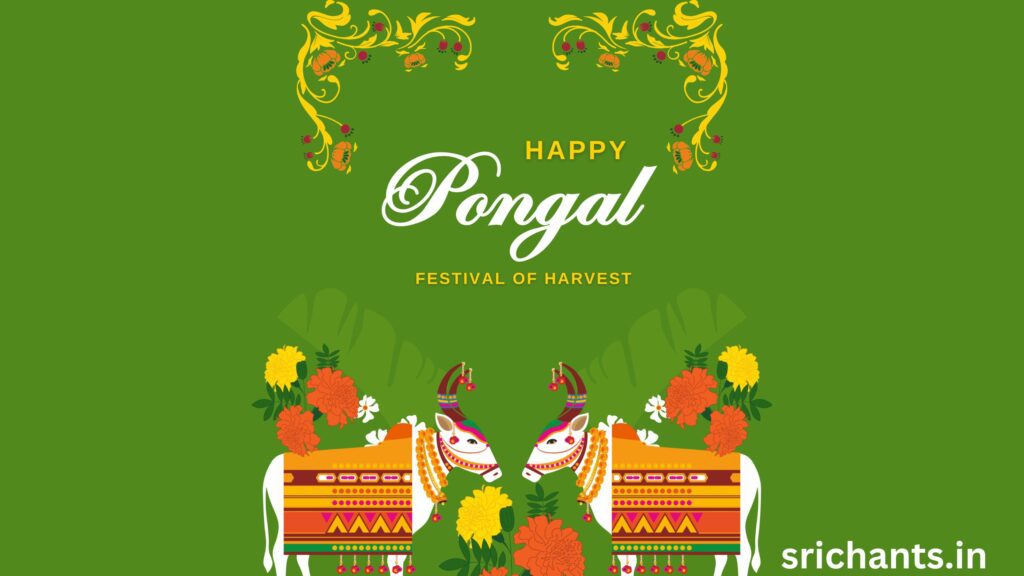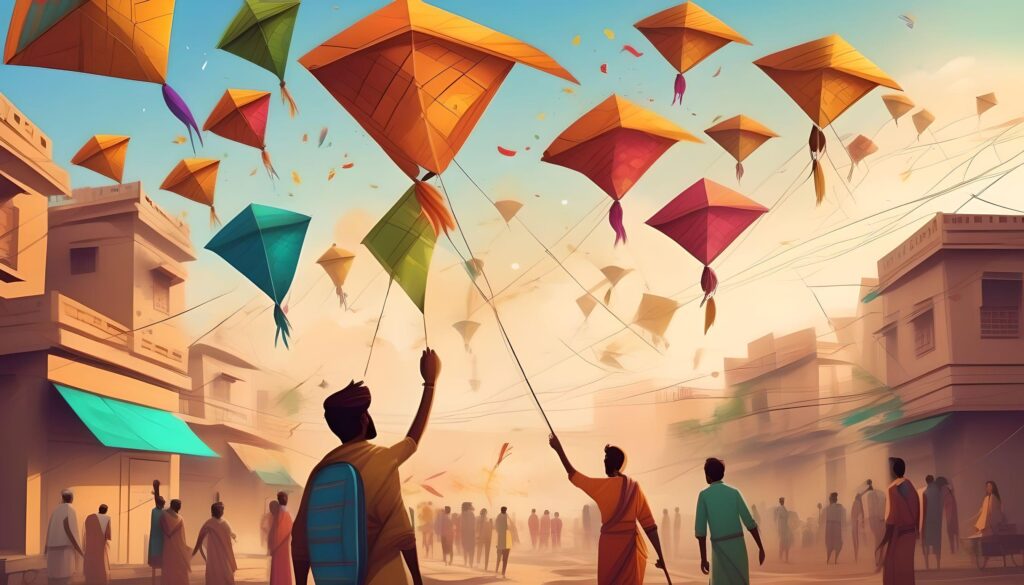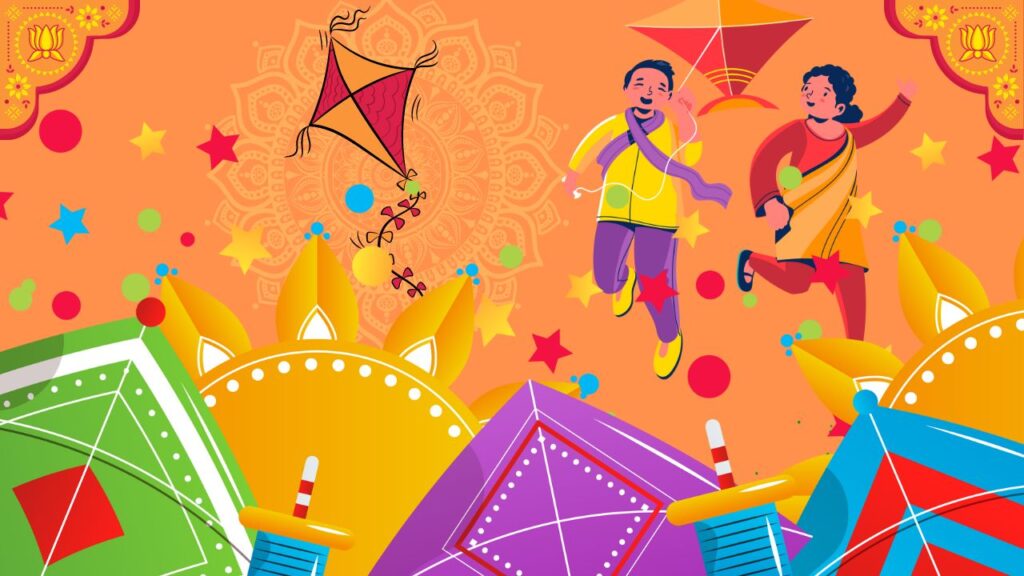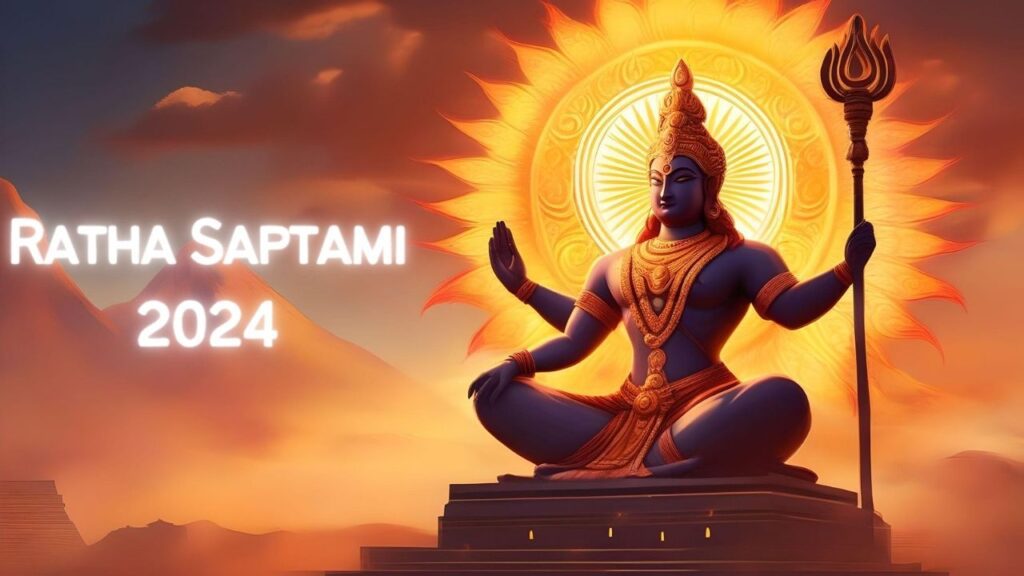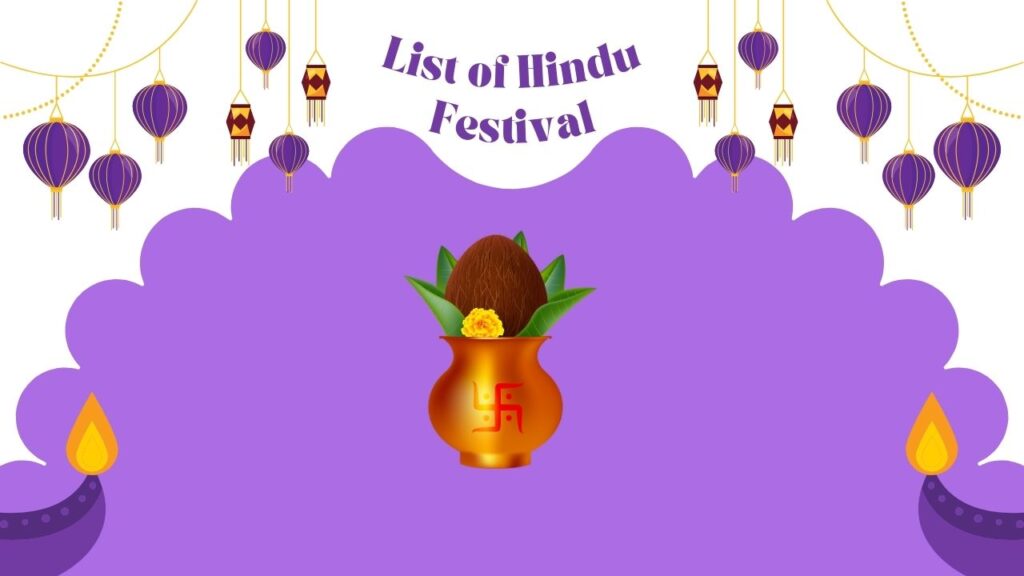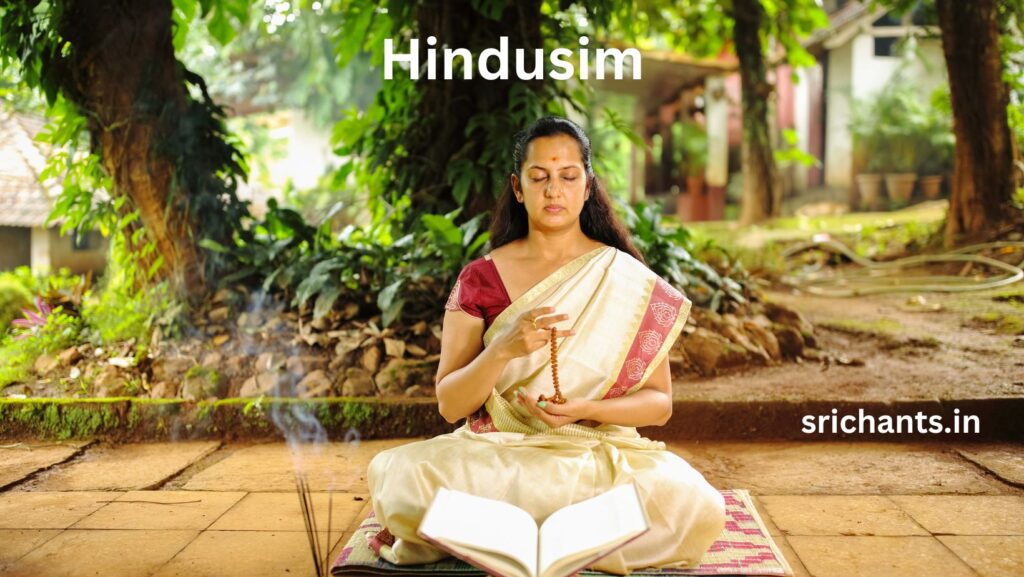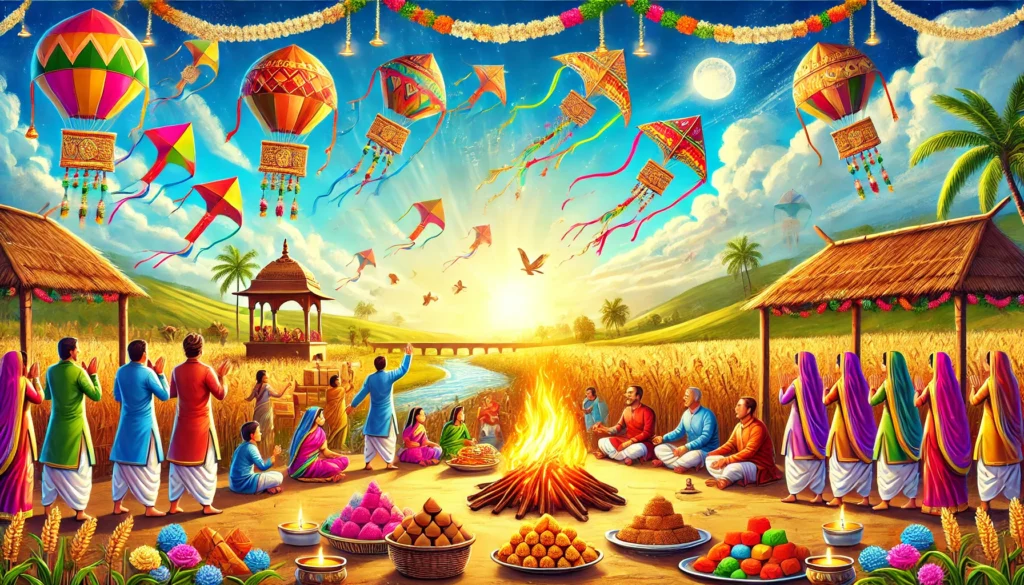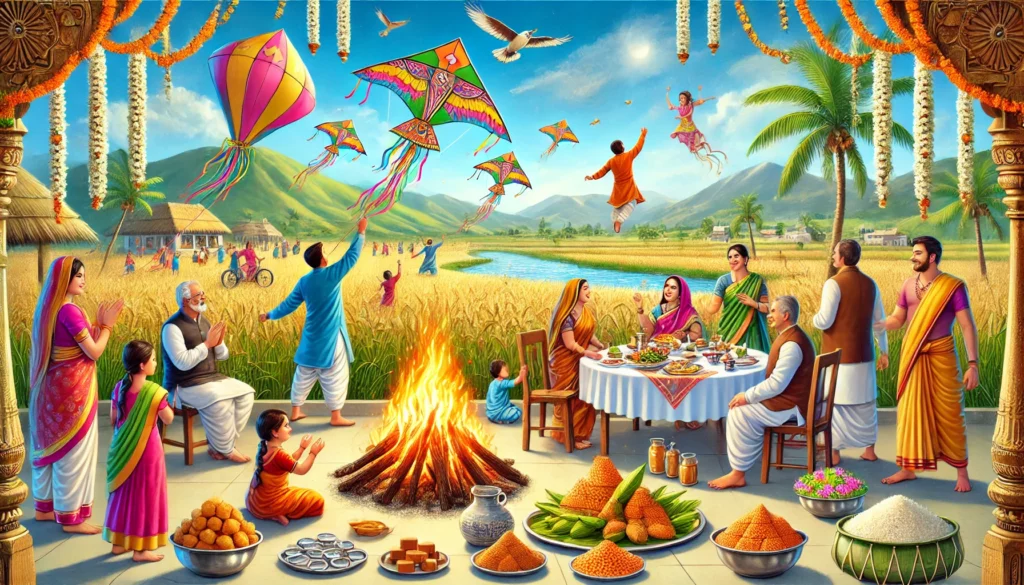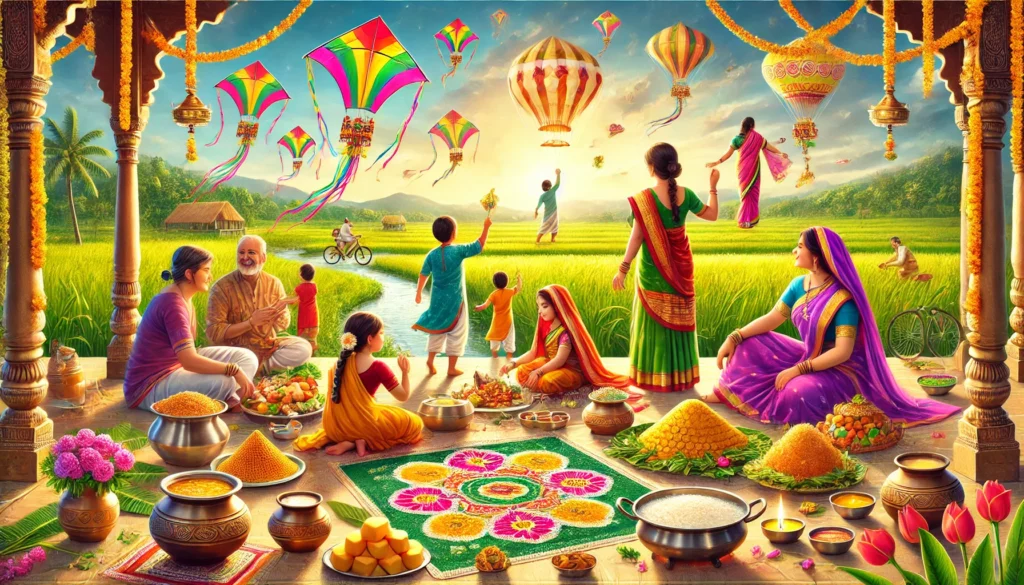Pongal 2025: The Harvest Festival and Food
Introduction
Pongal honors nature, thanksfulness, and wealth rather than only a celebration. Rooted firmly in Tamil culture and history, Pongal is a harvest celebration observed with great excitement mostly in Tamil Nadu and among Tamil communities all around. Pongal will be observed from January 14 to January 17 in 2025, commemorating the beginning of the Tamil month of Thai, a time said to offer fresh blessings and possibilities.
Emphasizing Pongal’s vivid celebrations in 2025, this essay transports you through the rich history, cultural importance, customs, and modern-day relevance of this holiday. Let’s examine the specifics of this vibrant celebration that brings people together and respects the natural gifts.
Pongal: The Festival of Gratitude
With its meaning of “boil over” in Tamil, the word “Pongal” is a metaphor for abundance and the overflowing of benefits. The celebration is devoted to the Sun God, also known as Surya, as well as the rain and the animals that are used in agriculture and play an important role in the process. Pongal is a festival that is celebrated over the course of four days and is characterized by a harmonic blend of rituals, gastronomic pleasures, and communal joy.
Significance of Pongal in 2025
Despite the fact that the cultural landscape is always shifting, Pongal continues to have its historic significance in the year 2025. This event continues to be an important celebration for farmers, as it serves as a sign of thanks for a successful harvest and the hope that the new year would bring wealth.
On January 14, 2025, the festival will begin with Bhogi Pongal, and it will conclude with Kaanum Pongal, which will take place on January 17. The richness of Tamil tradition and culture is displayed via the various rituals and customs that are performed on a daily basis.

A Detailed Look at the Four Days of Pongal
Day 1: Bhogi Pongal (January 14, 2025)
Bhogi Pongal marks the beginning of the celebrations. This day is dedicated to cleansing and renewal, both physically and spiritually.
- Rituals and Customs:
People clean their homes and start bonfires to burn old and unwanted belongings, which is a symbol of the eradication of negativity from their lives. Through the process of cleansing and getting rid of old items, one can make room for new opportunities and positive energy to enter their lives.- Traditional rangoli designs, known as kolams, are drawn outside homes using rice flour, signifying prosperity and inviting good fortune.
- Cultural Activities:
As part of the Bhogi Pongal celebration, prayers are offered to Lord Indra, commonly known as the Rain God, in recognition of his contribution in ensuring a successful harvest. As an expression of appreciation, farmers in rural areas consecrate their implements by applying sandalwood paste to them and then worshipping them.
Day 2: Thai Pongal (January 15, 2025)
Thai Pongal, the main day of the festival, is dedicated to the Sun God, whose energy sustains life on Earth.
- Preparation of Pongal Dish:
Rice that has been freshly harvested, jaggery, milk, and ghee are the ingredients that are used by families to cook the traditional Pongal feast on this day. When the meal boils over, people rejoice with chants of “Pongal O Pongal,” which serves as a symbol of abundance. The dish is cooked in an earthen pot beneath the sun.- This dish is offered to the Sun God along with sugarcane, turmeric, and other items as a mark of gratitude.
- Rituals and Decorations:
Homes and temples are decorated with fresh flowers and kolams. People wear new clothes and visit temples to seek blessings for prosperity and happiness.
Day 3: Mattu Pongal (January 16, 2025)
Mattu Pongal is a day dedicated to cattle, particularly cows and bulls, which are considered sacred and vital for agriculture.
- Cattle Worship:
On this day, farmers bathe their cattle, decorate them with garlands, and paint their horns. These animals are worshipped and fed special treats as a gesture of gratitude for their hard work.- In many villages, the traditional sport of Jallikattu (bull-taming) takes place, showcasing the bravery of participants and the strength of bulls.
Day 4: Kaanum Pongal (January 17, 2025)
The final day, Kaanum Pongal, focuses on family and community bonding.
- Traditions:
Families gather to spend quality time together, sharing meals and visiting relatives. In rural areas, this day includes community feasts, traditional games, and cultural performances.- A unique ritual called Kanu Pidi is performed by women, where food is offered to birds and animals, symbolizing coexistence with nature.

Pongal 2025: Modern Relevance
In today’s fast-paced world, Pongal serves as a reminder of humanity’s deep connection with nature. As urbanization grows, this festival emphasizes the importance of agriculture and the need to preserve traditional practices. Pongal in 2025 is likely to see an increase in eco-friendly celebrations, with more emphasis on sustainable practices such as using natural materials for decorations and reducing waste.
Interesting Facts About Pongal
- Historical Roots: Pongal dates back over 2,000 years to the Sangam Era, making it one of the oldest festivals in India.
- Astronomical Importance: The festival coincides with the winter solstice, marking the sun’s northward journey, known as Uttarayanam.
- Regional Variations: While Pongal is predominantly a Tamil festival, similar harvest celebrations like Makar Sankranti in North India and Lohri in Punjab are observed around the same time.
- Pongal Dish: The sweet Pongal dish is so iconic that the festival itself is named after it.
Why Pongal Is Special in Tamil Culture
In the state of Tamil Nadu, Pongal is more than just a festival; it is a representation of the state’s cultural identity. It is emblematic of the agrarian way of life that serves as the foundation of Tamil society. The celebration encourages communities to get together to celebrate and share their delight, which in turn helps to create unity.
Pongal continues to be a treasured occasion for reestablishing a connection with one’s own roots and values, even for people who have moved away from farming. It instills a sense of thankfulness for the natural world and encourages individuals to embrace traditions in a society that is becoming increasingly modernized.
Conclusion
The Pongal 2025 festival is more than simply a celebration of life; it is also a celebration of thankfulness and the state of Tamil Nadu’s rich cultural history. Whether it is the community feasts of Kaanum Pongal or the crackling bonfires of Bhogi Pongal, every facet of the celebration offers joy and draws people together.
As we chant “Pongal O Pongal” in the year 2025, let us not forget the deeper message that this celebration conveys: thankfulness for the gifts that nature has bestowed, respect for tradition, and hope for a successful future. Regardless of whether it is celebrated in a bustling city or a peaceful village, Pongal continues to be an enduring tribute to the spirit of oneness, abundance, and the human race.
Your home should be filled with joy, your heart should be filled with thankfulness, and your life should be filled with success. On the occasion of Pongal O Pongal! 🌾✨
